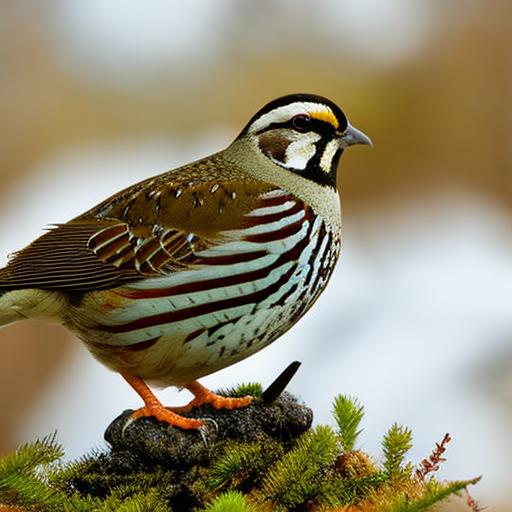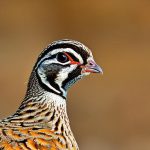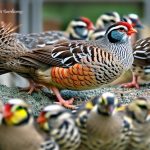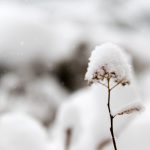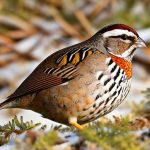Quail, like many other birds, have specific needs during the winter months. As the temperature drops, quail require a warm and dry shelter to protect them from the harsh weather. They also need access to clean water and nutritious food to maintain their health and well-being. Additionally, quail need appropriate bedding and nesting materials to keep them comfortable and secure during the colder months. Understanding these needs is crucial for providing the best care for quail during the winter.
In the winter, quail need a shelter that provides protection from the cold, wind, and precipitation. They are particularly sensitive to cold temperatures and can suffer from hypothermia if not properly insulated. Additionally, quail need access to clean water and nutritious food to maintain their health and energy levels during the winter months. Without these essentials, quail can become stressed, malnourished, and more susceptible to illness. Providing appropriate bedding and nesting materials is also important for keeping quail comfortable and secure during the colder months. By understanding these needs, quail owners can ensure that their birds are well-cared for and healthy throughout the winter.
Key Takeaways
- Quail need a warm and dry shelter in the winter to protect them from harsh weather conditions
- Providing appropriate bedding and nesting materials is essential for quail to stay warm and comfortable
- Access to clean water and nutritious food is crucial for quail to maintain their health and well-being during the winter
- Implementing winter-specific care routines, such as checking for frostbite and adjusting feeding schedules, is important for quail in the winter
- Monitoring quail health and behavior regularly can help identify any issues and ensure they are happy and healthy during the winter months
Creating a warm and dry shelter for quail
Creating a warm and dry shelter for quail is essential for their well-being during the winter months. The shelter should be insulated to protect the birds from the cold and wind, and it should also be waterproof to prevent moisture from seeping in. Additionally, the shelter should be well-ventilated to prevent the buildup of humidity, which can lead to respiratory issues in quail. Providing a warm and dry shelter will help quail stay comfortable and healthy throughout the winter.
One way to create a warm and dry shelter for quail is to use a well-insulated coop or aviary. The coop should be lined with insulation material such as straw or hay to provide additional warmth, and it should also be equipped with a heat source such as a heat lamp or heated pad. This will help maintain a comfortable temperature inside the shelter, even when it’s cold outside. Additionally, the coop should be equipped with proper ventilation to prevent the buildup of moisture and ammonia from the birds’ droppings. This will help keep the air inside the shelter clean and dry, which is essential for quail health during the winter months.
Providing appropriate bedding and nesting materials
Providing appropriate bedding and nesting materials is crucial for keeping quail comfortable and secure during the winter months. The bedding should be soft, absorbent, and easy to clean, while the nesting materials should be warm and cozy to provide a safe space for the birds to lay their eggs. By providing these essentials, quail owners can ensure that their birds are well-cared for and content throughout the winter.
One option for bedding material is straw, which is soft, absorbent, and provides good insulation against the cold. Another option is wood shavings, which are also absorbent and easy to clean. For nesting materials, dried grasses or hay can provide a warm and cozy environment for quail to lay their eggs. It’s important to regularly clean and replace the bedding and nesting materials to prevent the buildup of bacteria and parasites, which can lead to health issues for the birds. By providing appropriate bedding and nesting materials, quail owners can help their birds stay comfortable and secure during the colder months.
Ensuring access to clean water and nutritious food
Ensuring access to clean water and nutritious food is essential for maintaining the health and well-being of quail during the winter months. Quail need a constant supply of fresh water to stay hydrated, especially when temperatures drop below freezing. They also require a balanced diet of high-quality feed to maintain their energy levels and immune system. By providing these essentials, quail owners can ensure that their birds are healthy and thriving throughout the winter.
One way to ensure access to clean water for quail during the winter is to use heated waterers or bowls that prevent water from freezing. This will ensure that quail have a constant supply of fresh water, even when temperatures drop below freezing. Additionally, providing a balanced diet of high-quality feed is essential for maintaining quail health during the winter months. Quail feed should contain a mix of grains, seeds, and protein sources to provide essential nutrients and energy for the birds. By ensuring access to clean water and nutritious food, quail owners can help their birds stay healthy and strong throughout the winter.
Implementing winter-specific care routines for quail
Implementing winter-specific care routines for quail is essential for maintaining their health and well-being during the colder months. This includes regular cleaning of the shelter, providing extra insulation, adjusting feeding schedules, and monitoring the birds for signs of illness or distress. By implementing these care routines, quail owners can ensure that their birds are well-cared for and thriving throughout the winter.
One important winter-specific care routine for quail is regular cleaning of the shelter to prevent the buildup of bacteria and parasites. This includes removing soiled bedding, cleaning feeders and waterers, and disinfecting the shelter as needed. Additionally, providing extra insulation in the form of additional bedding or heat sources can help keep quail warm and comfortable during the colder months. Adjusting feeding schedules to provide extra nutrients and energy can also help quail maintain their health during the winter. Finally, monitoring the birds for signs of illness or distress is crucial for identifying and addressing any health issues that may arise during the winter months. By implementing these care routines, quail owners can ensure that their birds are well-cared for and thriving throughout the winter.
Monitoring quail health and behavior during the winter months
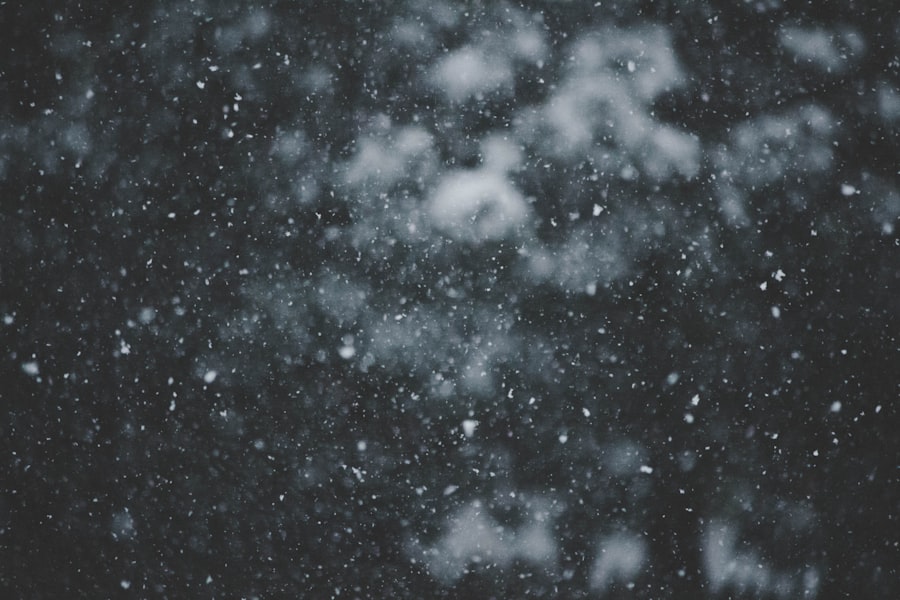
Monitoring quail health and behavior during the winter months is crucial for identifying any potential issues or illnesses that may arise. This includes observing their activity levels, eating habits, vocalizations, and overall appearance. By monitoring these factors, quail owners can quickly identify any signs of illness or distress and take appropriate action to address them.
One way to monitor quail health during the winter is to observe their activity levels. Healthy quail are typically active and alert, while sick or stressed birds may appear lethargic or withdrawn. Monitoring their eating habits is also important, as changes in appetite or weight loss can indicate underlying health issues. Additionally, paying attention to their vocalizations can provide insight into their well-being, as distressed birds may exhibit unusual or excessive vocalizations. Finally, observing their overall appearance for any signs of injury, illness, or abnormal behavior is crucial for identifying potential issues early on. By monitoring quail health and behavior during the winter months, owners can ensure that their birds are well-cared for and thriving throughout the colder season.
Tips for keeping quail happy and healthy in the winter
Keeping quail happy and healthy in the winter requires attention to their specific needs and behaviors during this time of year. This includes providing a warm and dry shelter, ensuring access to clean water and nutritious food, implementing winter-specific care routines, monitoring their health and behavior, and providing enrichment activities to keep them stimulated. By following these tips, quail owners can ensure that their birds are well-cared for and content throughout the winter.
One tip for keeping quail happy and healthy in the winter is to provide enrichment activities to keep them stimulated. This can include placing perches or branches in their shelter for them to roost on, providing toys or objects for them to peck at or explore, or creating a dust bath area for them to engage in natural behaviors. Additionally, ensuring access to clean water and nutritious food is essential for maintaining their health during the colder months. Implementing winter-specific care routines such as regular cleaning of the shelter, providing extra insulation, adjusting feeding schedules, and monitoring their health and behavior are also important for keeping quail happy and healthy in the winter. By following these tips, quail owners can ensure that their birds are well-cared for and thriving throughout the colder season.
In conclusion, understanding the specific needs of quail in the winter is crucial for providing them with the best care possible during this time of year. Creating a warm and dry shelter with appropriate bedding and nesting materials, ensuring access to clean water and nutritious food, implementing winter-specific care routines, monitoring their health and behavior, and providing enrichment activities are all essential for keeping quail happy and healthy in the winter. By following these guidelines, quail owners can ensure that their birds are well-cared for and thriving throughout the colder months.
When it comes to keeping quail in the winter, it’s essential to ensure they are comfortable and safe from the cold weather. One important aspect to consider is the size of the coop door, as it can impact the insulation and warmth inside the coop. To learn more about the ideal coop door size for poultry, check out this informative article on poultrywizard.com. Understanding the best practices for coop design and heating can make a significant difference in keeping your quail healthy and thriving during the winter months.
FAQs
What are some important considerations for keeping quail in the winter?
Some important considerations for keeping quail in the winter include providing adequate shelter from the cold, ensuring access to clean water that doesn’t freeze, and adjusting their diet to meet their increased energy needs.
How can I provide shelter for quail in the winter?
You can provide shelter for quail in the winter by using insulated coops or adding extra bedding to their existing housing. It’s important to ensure that the shelter is draft-free and well-ventilated to prevent moisture buildup.
What should I feed my quail during the winter months?
During the winter months, you should adjust your quail’s diet to include more high-energy foods such as grains and seeds. This will help them maintain their body temperature and energy levels in the cold weather.
How can I prevent my quail’s water from freezing in the winter?
To prevent your quail’s water from freezing in the winter, you can use heated waterers, add a small amount of apple cider vinegar to the water to lower its freezing point, or simply change the water frequently to prevent it from freezing.
Are there any health concerns I should be aware of when keeping quail in the winter?
In the winter, quail are more susceptible to respiratory issues due to the cold and damp conditions. It’s important to keep their living area clean and dry, and to monitor them for any signs of illness.
Meet Walter, the feathered-friend fanatic of Florida! Nestled in the sunshine state, Walter struts through life with his feathered companions, clucking his way to happiness. With a coop that’s fancier than a five-star hotel, he’s the Don Juan of the chicken world. When he’s not teaching his hens to do the cha-cha, you’ll find him in a heated debate with his prized rooster, Sir Clucks-a-Lot. Walter’s poultry passion is no yolk; he’s the sunny-side-up guy you never knew you needed in your flock of friends!

